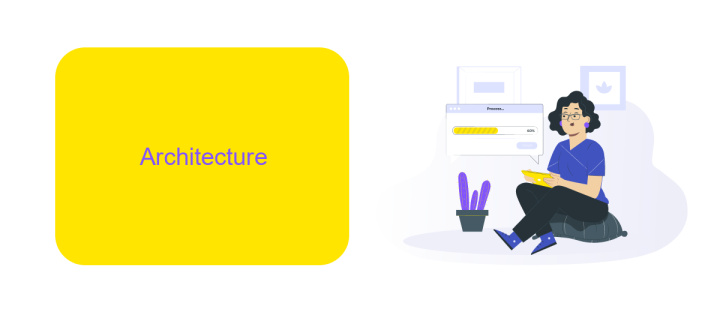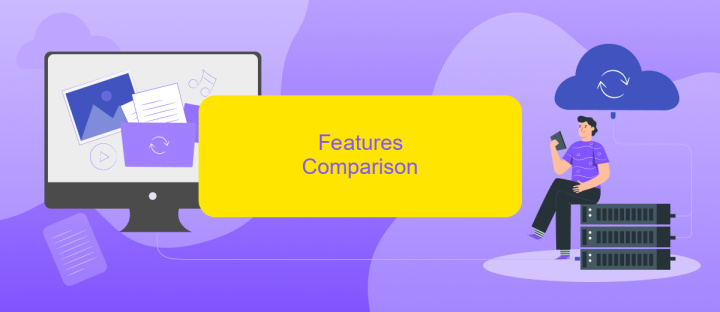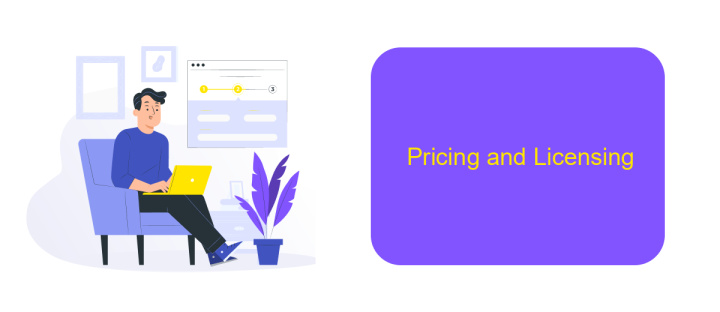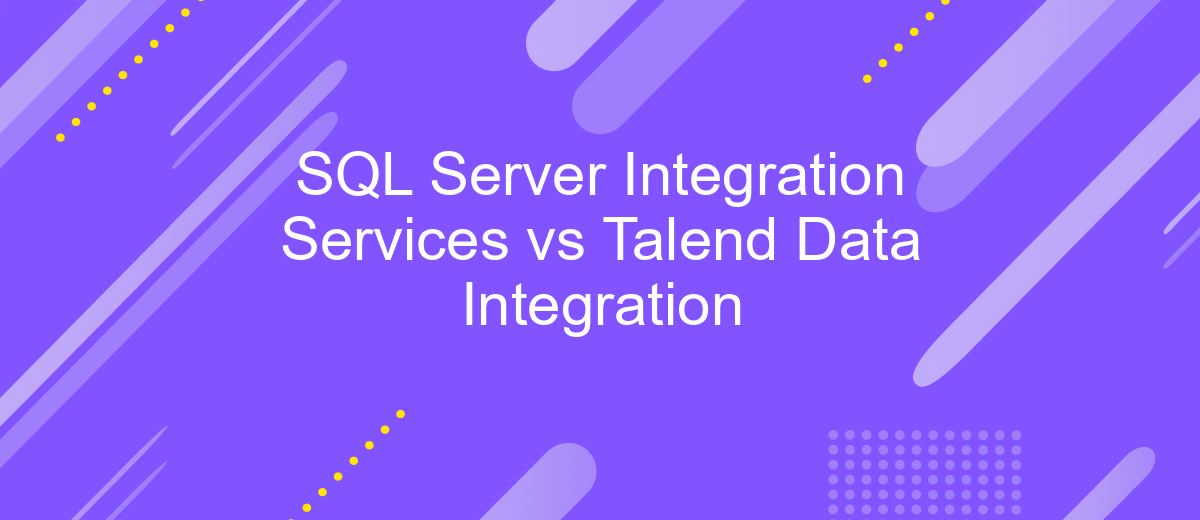SQL Server Integration Services vs Talend Data Integration
In today's data-driven world, choosing the right data integration tool is crucial for efficient data management and analysis. This article explores two popular options: SQL Server Integration Services (SSIS) and Talend Data Integration. By comparing their features, performance, and ease of use, we aim to help you determine which tool best suits your organization's data integration needs.
Introduction
In the realm of data integration, choosing the right tool can significantly impact the efficiency and effectiveness of your data workflows. SQL Server Integration Services (SSIS) and Talend Data Integration are two prominent solutions that cater to diverse data integration needs. Each offers unique features and capabilities, making it essential to understand their differences and advantages.
- SSIS: Developed by Microsoft, SSIS is a powerful tool for data extraction, transformation, and loading (ETL) processes within the SQL Server environment.
- Talend: An open-source platform, Talend provides extensive data integration capabilities, supporting a wide range of data sources and formats.
- ApiX-Drive: A versatile service that simplifies the integration of various applications and systems, enhancing the capabilities of both SSIS and Talend.
Understanding the strengths and limitations of SSIS and Talend Data Integration is crucial for making an informed decision. This article delves into their features, performance, and use cases, helping you determine the best fit for your organization's data integration needs. Whether you are looking for a robust ETL tool within the SQL Server ecosystem or a flexible, open-source solution, this comparison will guide you towards the right choice.
Architecture

SQL Server Integration Services (SSIS) is a platform for building enterprise-level data integration and data transformation solutions. Its architecture is based on a set of tools that allow developers to create, deploy, and manage workflows that extract, transform, and load (ETL) data. SSIS packages are developed using SQL Server Data Tools (SSDT) and can be executed by the SQL Server Agent or other scheduling tools. The architecture supports various data sources and destinations, providing extensive control over data flow and transformation logic through a rich set of built-in tasks and components.
Talend Data Integration, on the other hand, offers a more flexible and open-source approach to data integration. Its architecture is built around the Talend Studio, an Eclipse-based development environment, where users can design ETL processes using a graphical interface. Talend supports a wide range of connectors and components, making it highly adaptable to different data sources and destinations. Additionally, Talend’s architecture is designed to scale, with support for big data platforms and cloud environments. For those looking to streamline their integration processes further, services like ApiX-Drive can be integrated, providing automated workflows and real-time data synchronization across various applications and databases.
Features Comparison

When comparing SQL Server Integration Services (SSIS) and Talend Data Integration, both tools offer robust capabilities for data management and transformation. However, each has unique features that cater to different needs.
- Usability: SSIS offers a user-friendly interface with drag-and-drop functionality, while Talend provides a more complex but highly customizable environment.
- Scalability: Talend is known for its ability to scale across multiple platforms, whereas SSIS is more suited for environments that are primarily based on Microsoft technologies.
- Integration: SSIS integrates seamlessly with other Microsoft products, while Talend supports a broader range of data sources and platforms.
- Performance: SSIS often delivers better performance within a Microsoft ecosystem, whereas Talend excels in heterogeneous environments.
- Cost: SSIS is included with SQL Server at no additional cost, whereas Talend requires a separate licensing fee.
Both SSIS and Talend offer powerful solutions for data integration. For those looking for a cloud-based service to further simplify integrations, ApiX-Drive can be a valuable addition, offering automated workflows and seamless data transfers between various platforms.
Pricing and Licensing

When it comes to pricing and licensing, SQL Server Integration Services (SSIS) and Talend Data Integration offer different models that cater to various business needs. SSIS is typically included with SQL Server licenses, which means the cost is bundled with the SQL Server edition you choose. This can be beneficial for organizations already using Microsoft's ecosystem, as it can reduce the overall expense.
On the other hand, Talend Data Integration offers a subscription-based pricing model. This means you pay an annual or monthly fee based on the number of users and the features you need. Talend provides a free, open-source version, but its enterprise edition includes advanced features and support, making it more suitable for large-scale projects.
- SSIS: Included with SQL Server licenses
- Talend: Subscription-based pricing with a free open-source version
- ApiX-Drive: Pay-per-use model for integration services
For businesses looking for flexibility, ApiX-Drive offers a pay-per-use model that allows you to integrate various applications without a long-term commitment. This can be a cost-effective solution for small to medium-sized enterprises needing to streamline their data integration processes.
Conclusion
In conclusion, both SQL Server Integration Services (SSIS) and Talend Data Integration offer robust solutions for data integration and transformation. SSIS shines with its seamless integration within the Microsoft ecosystem, making it an ideal choice for organizations heavily invested in Microsoft technologies. On the other hand, Talend stands out with its open-source nature and flexibility, catering to a wide range of integration scenarios across different platforms.
Choosing between SSIS and Talend ultimately depends on your specific business needs, existing infrastructure, and long-term goals. For those seeking a more user-friendly, no-code solution to streamline data integration processes, services like ApiX-Drive can be a valuable addition. ApiX-Drive simplifies the integration setup, allowing businesses to connect various applications and automate workflows with ease. By evaluating the strengths and limitations of each tool, you can make an informed decision that aligns with your organization's data strategy and operational requirements.
FAQ
What are the primary differences between SQL Server Integration Services (SSIS) and Talend Data Integration?
Which tool is easier to use for beginners?
Can both SSIS and Talend handle real-time data integration?
Are there any cost considerations between SSIS and Talend?
Is there a way to automate and streamline integrations without deep technical knowledge?
Apix-Drive is a universal tool that will quickly streamline any workflow, freeing you from routine and possible financial losses. Try ApiX-Drive in action and see how useful it is for you personally. In the meantime, when you are setting up connections between systems, think about where you are investing your free time, because now you will have much more of it.

